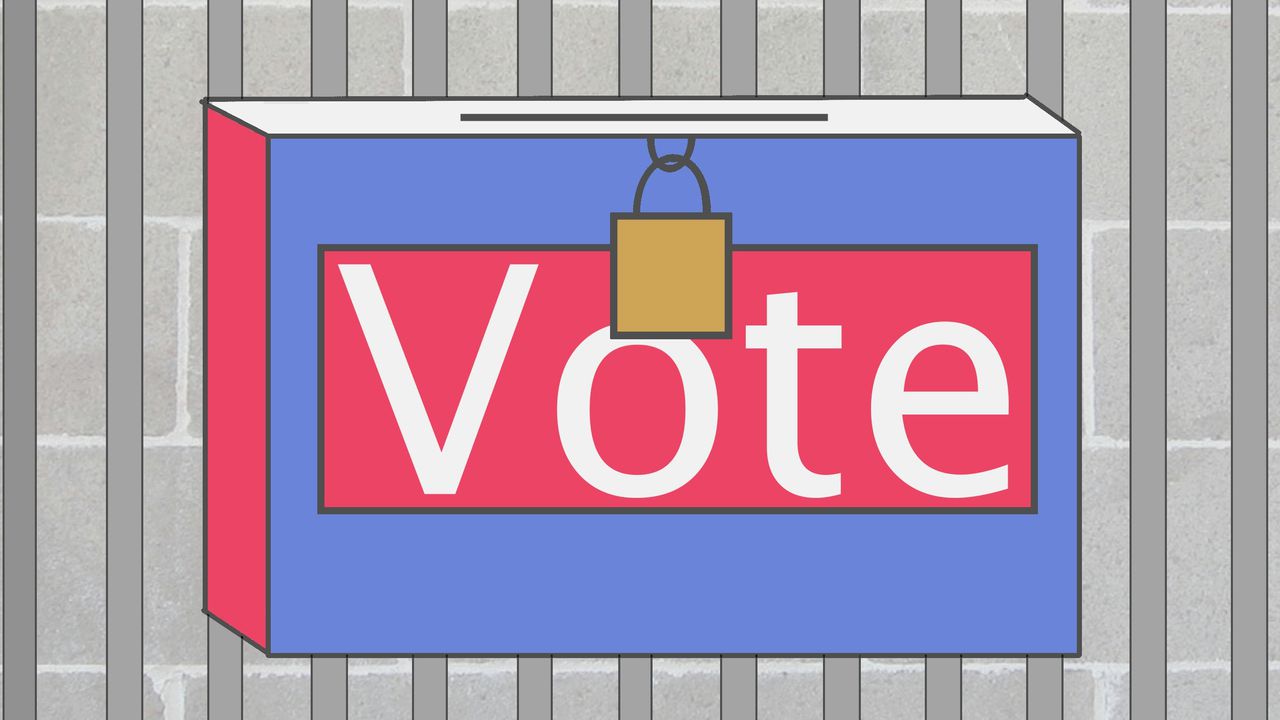Alabama 4th in nation in most felons not allowed to vote, report says
Alabama is among three states that have the highest percentage of voting age people ineligible to vote due to felony convictions, according to a study released last week.
The Sentencing Project said more than 8% in Alabama, as well as Mississippi and Tennessee, are not allowed to vote because of those felony convictions. Researchers said “felony disenfranchisement” is another effort at restricting ballot access, NPR reported.
Related: In Alabama, some felons are wrongly being barred from voting
Related: Too poor to vote: How Alabama’s ‘new poll tax’ bars thousands of people from voting
For the state’s top elections official, Secretary of State John Merrill, losing the right to vote is the result of a decision that person made.
“I think it needs to be known that if people are disqualified because of a disqualifying felony, that’s a disqualification due to a choice that that individual made,” Merrill said Wednesday in an interview with AL.com. “That was not something that was assigned to them because of their race, creed, color, or the content of their character.
“It was something that happened because they made a choice. And the choice they made was one that was a crime, a delineated crime against the state and against the people of the state. And so those people that have been convicted of those criminal activities have to suffer the consequences.”
The Sentencing Project report was released two weeks before the Nov. 8 election. In Alabama, offices on the ballot include governor, a U.S. Senate seat, all 140 seats in the state legislature and all statewide offices. Merrill is not on the ballot in the Secretary of State race because of term limits.
The report estimates that 318,681 Alabamians of voting age are prohibited from voting due to felony convictions. By percentage, that breaks down to 8.59% of voting age Alabamians, the third-highest percentage in the country behind Mississippi (10.69%) and Tennessee (9.28%).
In raw numbers, Florida has more than twice as many disqualified felons than any other state with more than 1.15 million. Tennessee is next (471,592) and Texas is third (455,160). Alabama is fourth nationally, just ahead of Virginia (312,540).
Under a 2017 Alabama law, only certain felony convictions result in a permanent loss of voting rights. Crimes of “moral turpitude” that prohibit the right to vote include murder, rape and other sexual abuse crimes, drug trafficking, robbery and other theft crimes and the production of obscene material. Altogether, the 2017 law spells out 47 specific crimes of moral turpitude.
Merrill said when he was elected Secretary of State in 2014, he initiated a review of disqualifying felony that included input from civil rights groups such as the ACLU and the Southern Poverty Law Center that resulted in the 2017 law.
“It does not concern me when you say that Alabama has ‘X’ number of people that are disqualified because of felony convictions related to certain activities because those individuals have chosen to commit those crimes,” Merrill said. “Those individuals are having to pay the penalties, the fines and the fees or serve the time related to that conviction.”
For those released from the prison system after being convicted of a non-disqualifying felony, information is made available from the Department of Corrections regarding regaining the right to vote, Merrill said. That would include making full restitution that may be related to sentences beyond prison terms.
“They’re given a voter registration form,” Merrill said. “There’s information that explains to them what steps they need to take. If they have questions, they’re encouraged to contact our office or the local board of registrar’s office.”
Nationwide, according to The Sentencing Project, there are about 4.6 million people who have lost the right to vote due to felony convictions.
“The significant reforms implemented in the past six years have helped to restore the rights of almost 1.5 million voters, yet 4.6 million still remain locked out,” the report said.
For Merrill, the more than 300,000 Alabamians who are banned from voting because of felony convictions have only themselves to blame.
“What matters to me is that each and every eligible U.S. citizen as a resident of Alabama is given the opportunity to become a registered voter and obtain a photo ID,” he said. “If someone has placed themselves in a position where they cannot be recognized as an eligible voter, that’s on them.”
